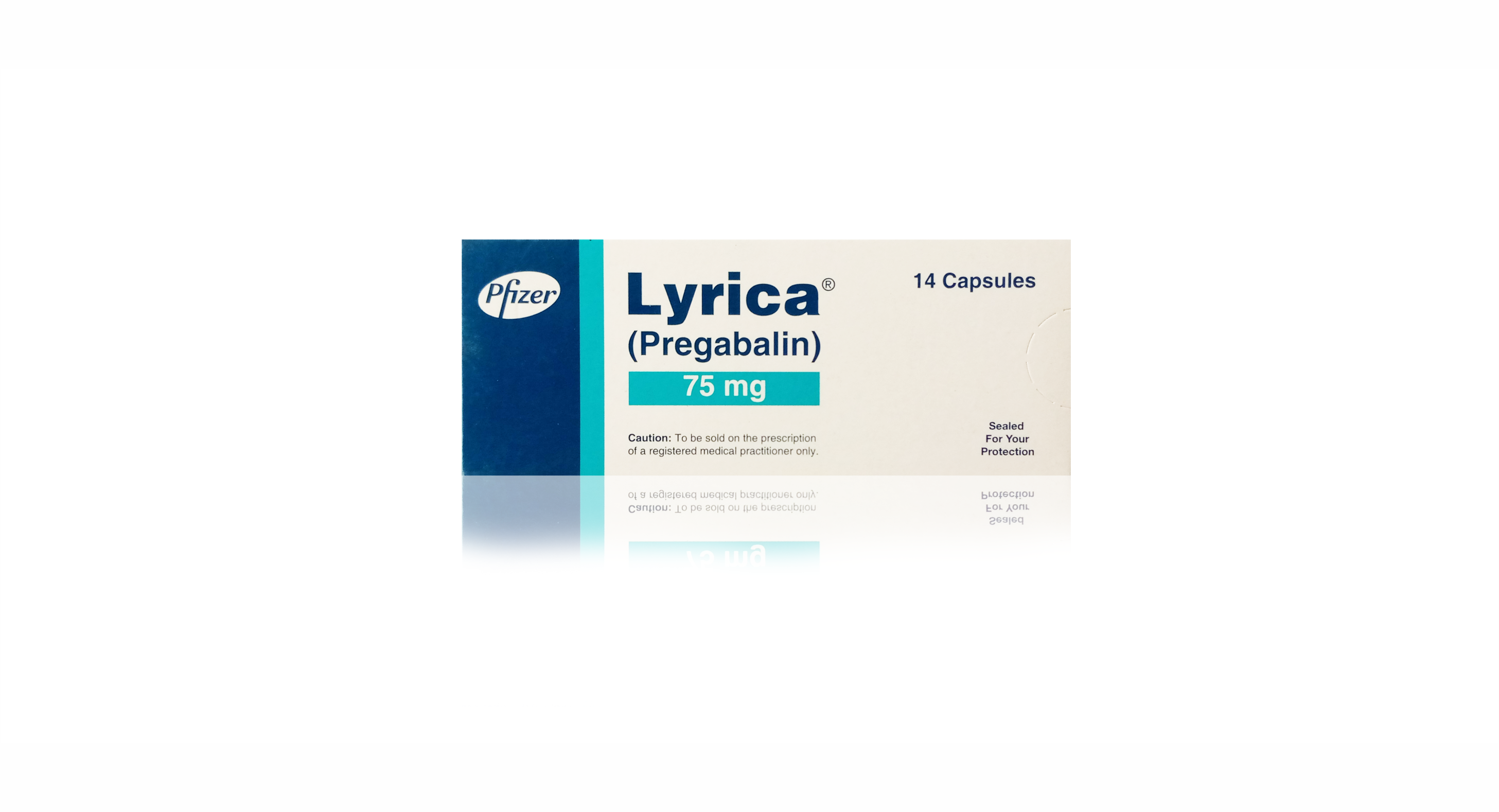Lyrica Tablets
Looking for an effective treatment for nerve pain, epilepsy, and anxiety disorders? Lyrica Tablets by Pfizer, available at Irfan Traders, are a clinically proven neuropathic pain reliever widely prescribed for managing conditions like diabetic nerve pain, fibromyalgia, and seizures.
As one of the leading pharmaceutical exporters in Pakistan, Irfan Traders ensures the global supply of high-quality medicines, including the widely prescribed Lyrica Tablets by Pfizer.
Description
Lyrica Tablets by Pfizer | Irfan Traders – Trusted Pharmaceutical Exporters in Pakistan
What Are Lyrica Tablets?
Lyrica (Pregabalin) is a prescription medication used for treating neuropathic pain, epilepsy, and generalized anxiety disorder (GAD). It belongs to the anticonvulsant drug class, which helps reduce nerve pain and stabilize electrical activity in the brain.
Key Uses of Lyrica Tablets:
✔ Treatment of Nerve Pain (Neuropathy) – Relieves nerve damage-related pain from diabetes, shingles, or spinal injuries.
✔ Epilepsy Management – Used as an adjunct therapy for controlling seizures.
✔ Fibromyalgia Relief – Reduces widespread muscle pain, tenderness, and fatigue.
✔ Anxiety Disorder Treatment – Helps in managing generalized anxiety disorder (GAD).
✔ Post-Herpetic Neuralgia (PHN) Therapy – Eases nerve pain following herpes zoster infection (shingles).
📌 Learn more about Pregabalin from Drugs.com (nofollow outbound link).
Active Ingredients in Lyrica Tablets
Each Lyrica Tablet contains:
- Pregabalin (various strengths: 50mg, 75mg, 150mg, 300mg) – A gamma-aminobutyric acid (GABA) analog that works by calming overactive nerve signals in the brain.
Additional Ingredients Include:
✔ Lactose Monohydrate – Enhances tablet stability.
✔ Magnesium Stearate – Improves consistency.
✔ Titanium Dioxide (E171) – Used as a coating agent.
📌 Find out more about Pregabalin at MedlinePlus (nofollow outbound link).
Why Choose Lyrica Tablets?
Lyrica is clinically proven to provide effective relief from nerve-related pain and anxiety disorders. Here’s why it is highly recommended:
✅ Powerful Nerve Pain Relief – Effectively manages diabetic neuropathy, fibromyalgia, and post-herpetic neuralgia.
✅ Reduces Seizures & Epilepsy Symptoms – Used in combination therapy for seizure control.
✅ Treats Generalized Anxiety Disorder (GAD) – Helps calm nerves and reduce anxiety levels.
✅ Well-Tolerated & Clinically Tested – Recommended by neurologists & pain specialists.
✅ Fast-Acting Formula – Provides quick relief from nerve pain within days of usage.
📌 For more details, visit WebMD (nofollow outbound link).
How to Use Lyrica Tablets?
💊 Dosage & Administration:
- For Neuropathic Pain: 75mg twice daily (can be increased based on doctor’s prescription).
- For Epilepsy (Seizures): 150mg–600mg daily (divided into multiple doses).
- For Generalized Anxiety Disorder (GAD): 150mg–450mg per day, depending on severity.
- For Fibromyalgia: 150mg–225mg twice daily.
Important Instructions:
✔ Take with or without food.
✔ Do not crush or chew the tablets.
✔ Take at the same time each day to maintain consistency.
✔ Avoid alcohol while on medication.
📌 Check the official dosage guidelines at Mayo Clinic (nofollow outbound link).
Precautions & Side Effects
Precautions:
❗ Do not use if allergic to Pregabalin.
❗ Not suitable for people with kidney disease or heart conditions.
❗ Consult a doctor before use if pregnant or breastfeeding.
Possible Side Effects:
⚠ Common Side Effects:
- Dizziness & drowsiness
- Dry mouth
- Mild swelling (edema) in hands or feet
- Weight gain
⚠ Serious Side Effects (Seek Medical Help):
- Severe allergic reactions (rash, itching, swelling)
- Blurred vision or coordination problems
- Unusual mood changes, depression, or suicidal thoughts
📌 For more details on side effects, visit NHS (nofollow outbound link).
Why Buy Lyrica Tablets from Irfan Traders?
At Irfan Traders, we guarantee 100% authentic Lyrica Tablets by Pfizer, offering fast and secure international shipping.
✅ Certified & Genuine Products – Sourced directly from Pfizer.
✅ Wholesale Supply & Bulk Discounts – Ideal for pharmacies & distributors.
✅ Regulatory Compliance – Meets WHO pharmaceutical standards (nofollow outbound link).
✅ Global Shipping – Reliable delivery to international markets.
✅ Dedicated Customer Support – Assistance with orders & queries.
📩 For bulk orders, contact us today!
🔹 Contact Us to inquire about pricing and delivery.
Wholesale Orders for Lyrica Tablets
📦 Looking for Lyrica Tablets in bulk?
✔ Available for export at Irfan Traders.
✔ Wholesale Discounts for Distributors & Pharmacies.
✔ Fast & Secure International Shipping.
✔ Guaranteed Quality & Authenticity.
📌 Order today for the best deals on Lyrica Tablets!
Order Lyrica Tablets Today!
At Irfan Traders, we guarantee fast, secure, and affordable access to Lyrica Tablets by Pfizer.
📩 Contact us today for wholesale pricing and international shipping! 🚀






Reviews
There are no reviews yet.